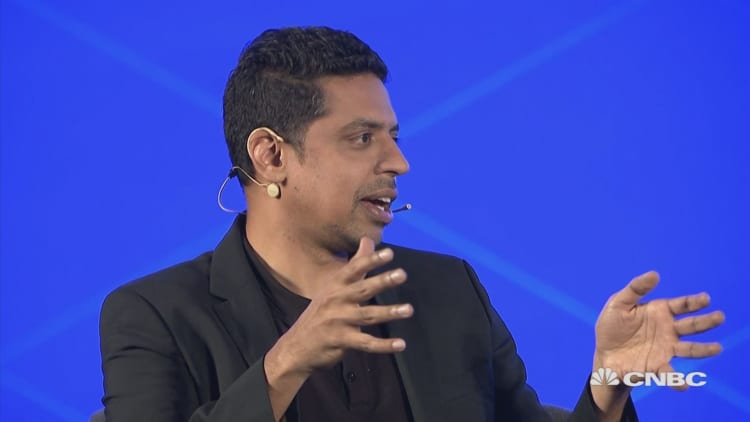
Heavyweight players like Amazon and Microsoft dominate the cloud space with centralized databases. But an alternative decentralized system will help solve inherent problems in the existing system, according to Pavel Bains, CEO of Bluzelle, a start-up that uses blockchain technology to enhance the database ecosystem.
Much like home-sharing platform Airbnb, Bluzelle allows users to rent out underused data capacity in everyday objects like computers and mobile phones, Bains said at CNBC's East Tech West conference in the Nansha district of Guangzhou, China on Thursday.
The Singapore-based company, founded in 2014, implements the principles of blockchain technology to build decentralized databases. That is, to store data on many different data ecosystems instead of having everything in one host. The firm said that this method will bypass the scale and security issues traditional databases face.
"Right now, those cloud database providers (are) all centralized and it comes out with certain issues like scalability issues, security," Bains said, pointing to data breaches both U.S. company Under Armour as well as Hong Kong flag carrier Cathay Pacific experienced this year.
The problem, he explained, is that there is too much data on a single network. "With a decentralized one, what it does is basically breaks up where everything is stored," Bains explained, likening it to smashing a plate, representing the dataset, into a thousand pieces, making it much more secure — a process called "sharding."
This means that in the unlikely event hackers breach the database, they would possess only a "little piece of the puzzle, they can't take over the whole network," he said.
Data as a currency
Bains also said in a panel session at the conference that the aim was to treat data as currency, giving consumers and businesses individual control over their data.
"Just because you use Twitter ... Facebook, Instagram, you think it's free, but we're actually paying for it with our data," he said.
The issue starts when these companies store the data insecurely, monetizing it without the users' knowledge, or even manipulating it, Bains said. "People need to start being more aware of managing their data as a currency and holding people accountable."
Bluzelle comes into play by providing a system where users can fully control and access their data, and also allows them curate data or sell excess storage space to other users.
"So you got massive computers around the home – mobile phones, PlayStations. All that has unused capacity," he said. As a user you simply "turn on your computer, download our software, and basically you're renting out that excess storage space."
While competition is fierce, with Amazon and Microsoft retaining a large chunk of the cloud database market, Bains said he believes Bluzelle's system will appeal to new users.
"On the customer side, let's take a PlayStation, my kids have it. That thing has a terabyte of storage - they're never going to use it. And then they're paying $60, $70 for a game," Bains said, adding that Bluzelle allows the unused storage space of the PlayStation to be "rented out," at no cost to the children's PlayStation experience.
"There's no extra effort on them, they don't have to be engineers," to join and be part of the network, according to Bains, who added it will be enough of an incentive to drive users toward his decentralized database.




